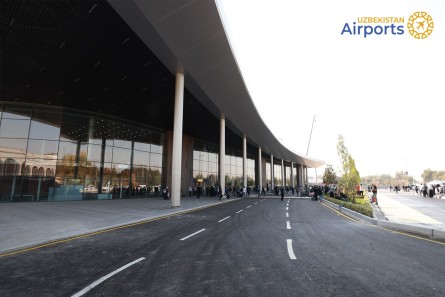From 12-14 October 2017 Helena Fraser, UN Resident Coordinator in Uzbekistan and Olivier Chave, Ambassador of Switzerland in Uzbekistan visited the Republic of Karakalpakstan to familiarize with the current situation in the region and efforts of the Government to prevent the consequences of the environmental crisis; measures for adaptation to the climate change as well as the UN activities in Karakalpakstan. The visit was organized by the UN Joint Programme “Building the resilience of communities affected by the Aral Sea disaster through a Multi-Partner Human Security Fund for the Aral Sea”, funded by the United Nations Trust Fund for Human Security.
On October 13th, series of official meeting were held in Jokargi Kenes and the Council of Ministers of the Republic of Karakalpakstan that helped to shape a general understanding about the current situation in the region, outcomes and prospects of cooperation as well as to identify priorities for interaction to provide support to the communities living in the Aral Sea region.
“We all realize that a concerted effort of all partners, both the government and the international community, is needed to help the people affected by the Aral Sea disaster. In this regard, it’s also important that close alignment and complementarity of the UN Joint Programme that is being implemented in Karakalpakstan with the State Programme for the Aral Sea region,” said Helena Fraser.
The State Programme on the development of the Aral Sea region in 2017-2021 adopted in January 18th, 2017 is focused on implementation of comprehensive measures aimed to improve the environmental and social settings; living conditions for the population in the Aral Sea region; timely and efficient implementation of the investment projects to mitigate the consequences of environmental disaster. In this context, emphasis was placed upon the special role of the envisioned Multi-Partner Human Security Fund that is intended to enhance the resilience potential of the population through coordinated participation of the donor community to support implementation of the measures covered by the State programme.
The delegation also visited some pilot sites in Nukus and Muynak that were covered by the UN Joint Programme and UNDP with financial support from the Adaptation Fund of the UN Framework Convention on Climate Change. This includes Consultation and Information Center under the Nukus branch of Tashkent State Agrarian University that provides information support to the farmers and dekhkans, whose farms are located in the drought prone of Karakalpakstan; the automated meteorological station that provides accurate data widely applied in agricultural production, air transportation and land transportation sectors. The visit agenda also covered income generation sites; they include center for crafts development, which was launched with support from Karakalpak branch of Academy of Arts of Uzbekistan and the sawing workshop opened in cooperation with Karakalpak Republican Society of Disabled people.
In Muynak, Helena Fraser and Olivier Chave visited the sawing workshop and the souvenirs production workshop; a computer service center and the “Aral” rural healthcare facility equipped with solar panels that allow to provide the local population with a full package of health services.
The delegation also visited the Lower-Amudarya Basin Authority of irrigation systems, where the UN Joint Programme under the financial support from the Swiss Agency for Development and Cooperation implements the project to raise the efficiency of the water resources use. Helena Fraser and Olivier Chave wished the basin authority all the success in its further work and handed over a set of office equipment and appliances that were purchased within the partner Project.















